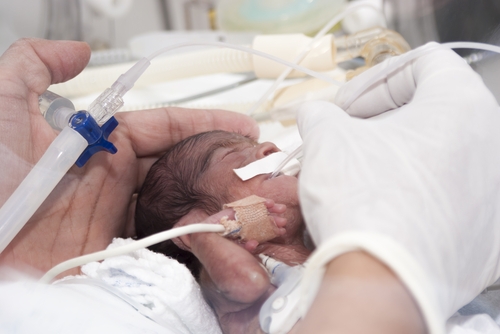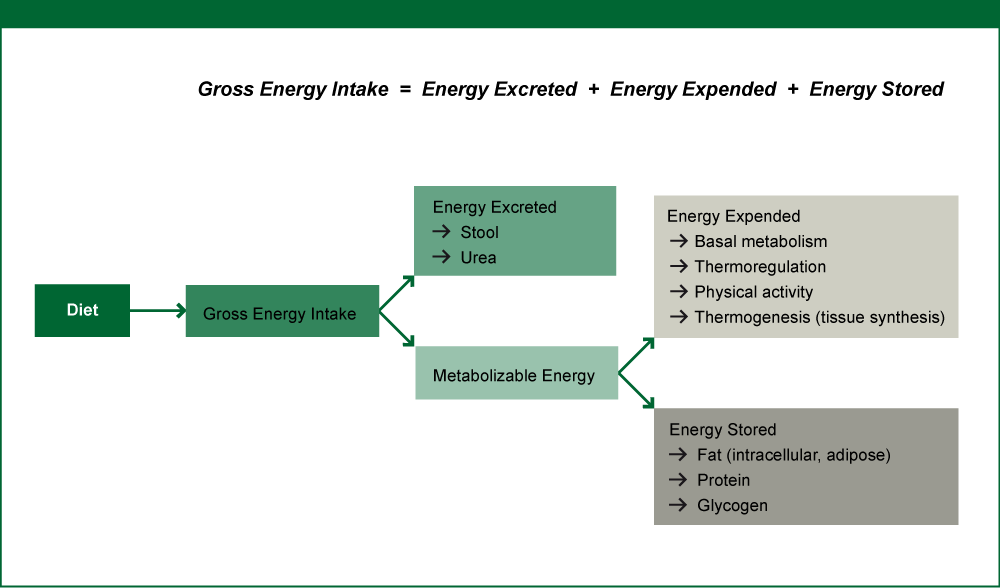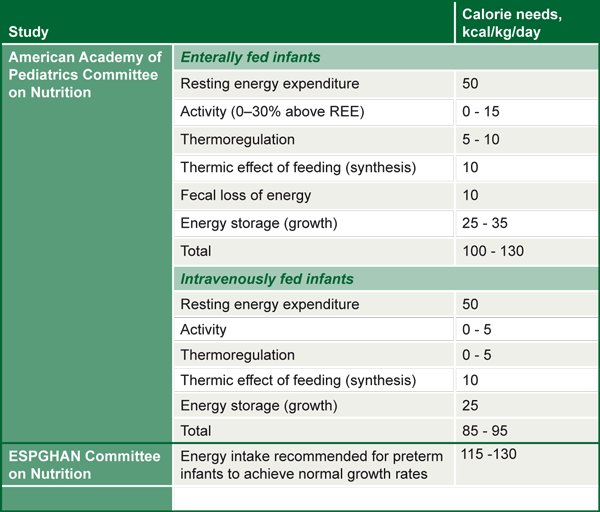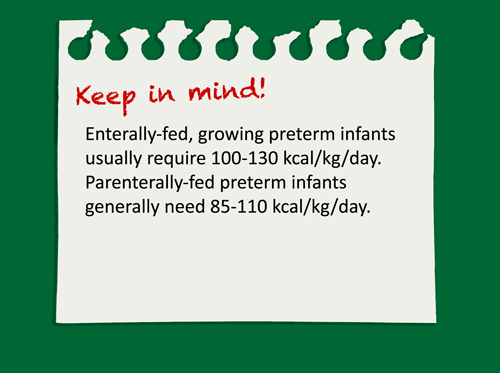Lesson 2: Energy requirements
2. Energy requirements
 A preterm infant requires energy for basic metabolic processes and growth. This energy comes in the form of carbohydrates, lipids, and amino acids and proteins. Carbohydrates and proteins provide approximately 4 kcal/g while lipids provide approximately 9 kcal/g. Ideally, lipids and carbohydrates will fuel basic metabolic processes and cover energy expenditures, while amino acids and proteins, are preferentially used for protein synthesis (growth).
A preterm infant requires energy for basic metabolic processes and growth. This energy comes in the form of carbohydrates, lipids, and amino acids and proteins. Carbohydrates and proteins provide approximately 4 kcal/g while lipids provide approximately 9 kcal/g. Ideally, lipids and carbohydrates will fuel basic metabolic processes and cover energy expenditures, while amino acids and proteins, are preferentially used for protein synthesis (growth).
Factors influencing the preterm infant's total energy requirements include:
• Postnatal age
• Activity level (e.g respiratory distress)
• Environmental temperature
• Energy losses (particularly in stool)
• Medical conditions (e.g. sepsis, lung disease)
• Mechanical ventilation (which reduces the energy cost of breathing)
• Dietary induced thermogenesis (DIT), the energy costs of digesting and metabolizing dietary intakes
• Body size and composition
(Hay et al. 2014)
Figure 2 shows a schematic view of energy intake and expenditure.
Figure 2: Schematic of energy intake, excretion, metabolism and storage.
Some of this energy is lost (energy excreted). Most of the lost energy comes from fats in stools, but a smaller amount of energy from carbohydrates and proteins is also excreted through this way. Protein metabolic products also are excreted through the urine, as urea. The metabolizable energy is the energy that can be used by the body. This energy will either be expended for acute metabolic needs (e.g thermoregulation, physical activity such as breathing, and tissues synthesis) or it will be stored for later expenditure.
Source: Hay et al. 2014, reprinted with permission of S. Karger AG, Switzerland
The estimated caloric requirement of the normally growing human fetus is about 24 kcal/kg/day between 24 and 28 weeks GA, and approximately 28 kcal/kg/day from 29 weeks until term (Ziegler et al. 1976). Enterally fed infants have a higher caloric requirement than parentally fed preterm infants, because they excrete more energy in their stools than the intravenously fed infants and gastrointestinal metabolism increases with enterally provided energy. In table 1, the caloric requirements for the preterm infant are detailed, showing 100-130 kcal/kg/day for enterally-fed growing preterm infants, and 85-110 kcal/kg/day for parenterally-fed preterm infants. Generally, the higher amounts are necessary in the smaller, more preterm infants who have larger body surface areas per body weight and higher energy requirements to support their greater rates of protein synthesis and growth.
Table 1. Calorie requirements (Kcal/Kg/day) for preterm infants to achieve normal growth.
Source: Hay et al. 2014, reprinted with permission of S. Karger AG, Switzerland


